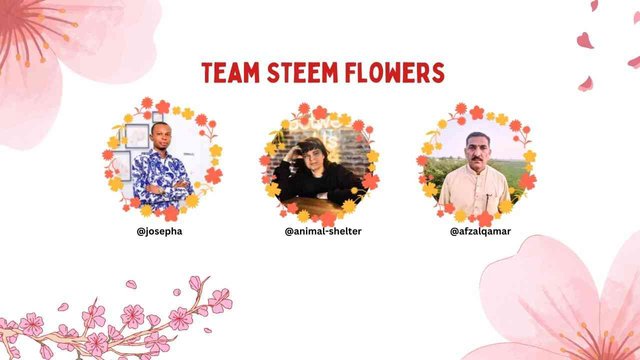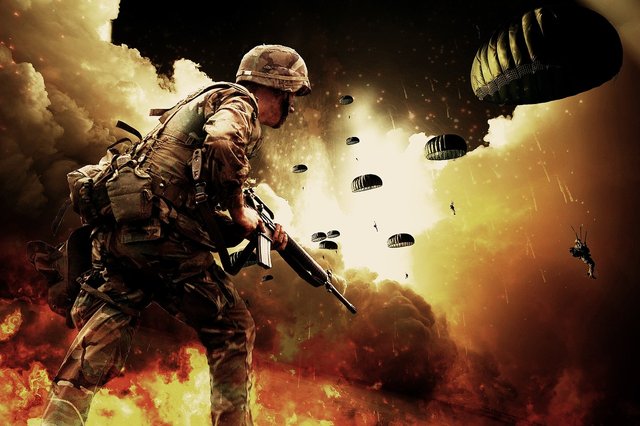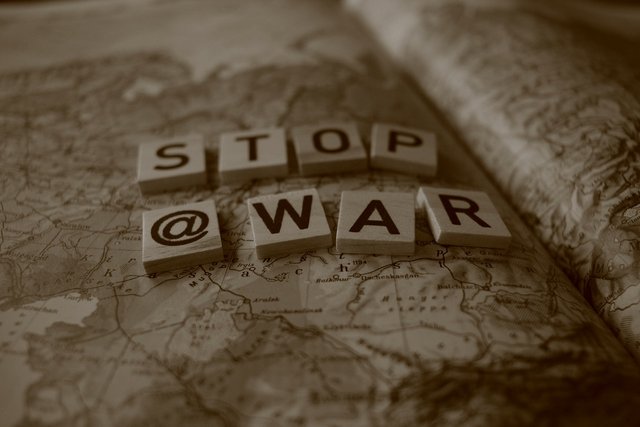Health Safety During War
Hello friends home and abroad warm regards to everyone, I'm Anthony from Nigeria and it's a pleasure to have you on my post, I'm delighted to engage in this contest, let's dive in!
Read Please!
What are the usual health dangers of war?
War sets up a deadly combination for a multitude of health threats—many of which go far beyond actual combat wounds. These are the most prevalent and dangerous health threats of war:
Oxford
I. Physical Trauma
Gun shot wounds, shrapnel wounds, burns, amputations, and traumatic blows.
Landmine explosions and improvised explosive devices usually result in long-term disabilities.
II. Infectious Diseases
Cholera, typhoid, dysentery, and malaria spread quickly because of unsanitary situations and crowding.
Respiratory infections and TB increase, particularly within refugee camps.
Vaccine-preventable illnesses (such as polio and measles) recur when immunization programs get interrupted.
III. Starvation and Malnour
Supply chains collapse, crops are destroyed, and there is a lack of food.
Children experience serious acute malnourishment, and pregnant women receive insufficient prenatal care.
SmartWater
IV. Mental Health Conditions
Post-Traumatic Stress Disorder, anxiety, depression, survivor’s guilt, and grief are common.
Inadequate mental health services cause long-term trauma, particularly for children.
Text:
V. Limited Access to Medical Attention
Hospitals are being bombarded, occupied, or sw
Chronic illnesses such as cancer, hypertension, and diabetes remain untreated.
Women deliver without skilled birth attendants, which contributes to infant and maternal mortality.
I'm
VI. Chemical and Environmental Exposure
Chemical weapons, smoke from explosions that is toxic, and depleted uranium ammunition may induce cancer, birth defects, and breathing complications.
Damage to the infrastructure results in dirty water, air, and soil, deteriorating public health.
Hopkins
. Sexual and Gender-Based Violence
Rape is frequently used as a tool of war.
Survivors are afflicted with physical trauma, STDs, unintended pregnancies, and deep psychological trauma.
Essentially, war destroys the whole public health ecosystem. The effects are not only immediate but also long-lasting—lasting for decades, even centuries—and particularly when kids are raised without clean drinking water, nutrition, or medical attention.
How can families and individuals safeguard their health during wars?
Protecting one's health amidst war is very challenging, yet individuals and their families can take steps to minimize danger, maintain their well being, and maximize chances of survival. Here is how:
I. Follow Hygiene and Sanitation
Boil the water or treat with purification tablets to avoid illness.
Construct temporary toilets far from living quarters and sources of water.
Wash hands with soap or ash, particularly after going to the toilet or handling food.
Keep the food stored to prevent contamination and pests.
II. Assemble an Emergency Health Kit
Basic first aid items (bandages, antiseptic, gau
Pain medications, fever medications, and antibiotics (if present)
Water purification tablets or filters
Prescription medication (to the extent possible)
Mosquito nets, particularly where malaria is prevalent
Oral Rehydration Salts (ORS) for dehydration
I'm
III. Vaccination and Secure Record Keeping
Keep yourself up to date with tetanus, measles, cholera, polio, and COVID-19 vaccinations.
Keep medical records within waterproof containers or on a computer, where practical.
I'm
IV. Practice safe cooking and storage of foods
Cook all foods thoroughly.
Avoid spoiled or raw foods.
Maintain cooking spaces clean and separated from sleeping spaces or spaces containing refuse.
V. Safeguard Mental Health
Set up routines: meals, prayers, story time, chores--anything that provides structure.
Discuss openly fears and emotions when it is safe to do so.
Shield children from trauma where possible—restrict their exposure to violence and provide reassurance
I'm
VI. Plan and Stay Informed
Listen to radios or local networks to find out about disease outbreaks, safe areas, or relief operations.
Maintain a family emergency plan: meeting spots, evacuation plans, and phone numbers.
Avoid risky areas like military zones, hospitals under attack, or known minefields.
VII. Handle the Wounded and the Dead with Care
Treat wounds with care because small wounds may become deadly due to infection.
Do not touch corpses unless trained to do so; cholera or hepatitis may be transmitted.
Brief: survival in war is a matter of preparedness, cleanliness, knowledge of health, and mutual assistance. Although not all is within your control, they can be life-saving measures.
Discuss any personal anecdotes, stories, or advice on staying healthy and safe in war.
Staying healthy and safe during war is immensely challenging, and while everyone’s experience is different, some common lessons and advice have emerged from soldiers, medics, civilians, and aid workers. Here are a few personal anecdotes and pieces of practical advice that reflect those hard-earned lessons:
I. Stay Clean, Stay Alive – A Medic’s Perspective
A former field medic in the army shared how something as basic as hygiene saved lives in the trenches more than once.
“People think bullets are the biggest threat, but in some of the worst days, it was infection. We were in muddy terrain, soaked for days, and blisters would turn into festering wounds. We started prioritizing foot care—dry socks, antiseptic wipes, and airing out boots when we could. It sounds small, but that kind of attention to hygiene kept more of our guys in fighting shape than I can count.”
Lesson: Prioritize cleanliness. In war, even minor wounds can become fatal without hygiene.
II. Trust Instincts, Not Just Orders – A Soldier’s Story
One veteran recounted narrowly avoiding an ambush in Iraq by trusting his gut, even when it went against direct instructions.
“We were told to stick to a patrol route, but something felt off. The streets were too quiet. I told my team to pull back behind cover, just for a minute. Seconds later, an IED went off right on the path we were supposed to be on.”
Lesson: In high-risk areas, intuition matters. Situational awareness can be lifesaving.
III. Mental Health is Survival – A Refugee’s Reflection
A civilian who fled Syria shared how mental strength and community helped her family survive.
“We lost our home, our neighbors. But every evening, my mother insisted we eat together and talk. She told us stories, kept our minds occupied. That routine—meals, conversation, small rituals—kept us sane.”
Lesson: Mental health is as critical as physical safety. Build emotional support through small, stable routines.
IV. Pack Smart, Travel Light – Aid Worker Advice
An aid worker in conflict zones in Africa emphasized preparation and mobility.
“When things turn, you don’t have time to pack. I always tell people: have a go-bag ready with water, basic meds, ID, some cash, a flashlight, and a radio. It’s not about surviving forever—it’s about surviving the first 72 hours.”
Lesson: Be ready to move at a moment’s notice. A well-prepared emergency kit saves lives.
General Advice for Staying Healthy and Safe in War:
Stay hydrated and ration food when needed.
Boil water when possible to avoid disease.
Avoid crowds; they are targets.
Map escape routes and know alternate paths.
Communicate your location with someone you trust.
Stay informed via reliable radio or updates, not rumors.
What is the role of health workers and humanitarian assistance?
Health professionals and humanitarian workers provide life-saving services during war and armed conflict. They serve much broader purposes than healing wounds—ensuring the survival, dignity, and resilience of affected populations. Here is a distillation of their key functions:
I. Emergency Medical Care
Health professionals provide trauma care, surgery, and treatment for war injury (such as burns, amputations, gunshot injury).
They establish mobile clinics, triage centres, and field hospitals inside or close to the war zones.
Mental health workers offer counseling and psychological first aid to trauma and violence victims.
I'm
II. Health and Prevention of Disease
Basic public health is compromised in war-torn areas. Health workers:
Vaccinate against cholera, measles, or COVID-19 outbreaks.
Provide maternal and child healthcare services (such as safe delivery, nutrition support).
Supply clean water, sanitary materials, and hygiene kits to prevent the spread of disease.
I'm
III. Humanitarian Relief Coordination
Humanitarian groups like the Red Cross, Médecins Sans Frontières (MSF), and United Nations organizations (e.g., WHO, UNICEF) coordinate
food distribution, camp establishment, and lines for medical supplies
Relocating civilians from danger zones.
Providing safe spaces and health-care access to refugees in camps.
I'm
IV. Protection and Advocacy
Health personnel normally document war crimes and violations of international law, for example, attacks on healthcare facilities or the use of prohibited weapons.
Humanitarian groups demand ceasefires, "humanitarian corridors," and compliance with the Geneva Conventions.
V. Long-term Recovery
After the initial crisis, they maintain:
Health facility reconstruction
Trainer: Local people
Supporting communities with rehabilitation and recovery of mental well-being
Briefly put, humanitarian service providers and medical professionals form the backbone of survival in combat areas. They do not just dispense medication and supplies—hope, a plan, and a way toward recovery as well.
Why is awareness dissemination on health during wartime significant?
Awareness spreading for war-time health is absolutely important because it impacts life and death straight, averts illness, and makes individuals capable of a stick-to-home defense when systems fail them. It is important because:
I. Averts Outbreaks of
In war, the water and sanitation networks usually collapse, causing cholera, dysentery, malaria, etc.
Spreading basic knowledge of public health (e.g., boiling water, handling safe foods) reduces outbreaks that kill far more people than combat itself does.
II. Averts Panic By Fostering Accurate Information
Misinformation circulates quickly during war. Health awareness programs:
Eliminate false rumors such as fake cures or vaccine hysteria
Provide some steps on what to do during a medical emergency:
Support the preservation of public trust amongst healthcare providers and aid workers.
Tal
III. Encourages Preventive Behavior
Educating individuals on injury prevention, hygiene, sexual health, and mental wellness contributes to minimizing future healthcare burdens.
Awareness covers also landmine safety, infection symptom recognition, and basic trauma care.
IV. Fosters Self
When a hospital is bombed or not accessible, patients may resort to basic knowledge of first aid or domestic care.
Health education allows people to take life-saving action even when professionals are not present.
I'm
VI. Supports Vulnerable Populations
Women, children, seniors, and people with disabilities are especially at risk.
Awareness programs educate on maternal health, child nutrition, and mental healthcare, saving lives at times in densely populated refugee settlements or war-torn cities.
More informed populations recover faster, and they are less reliant on outside assistance.
In general, awareness serves as a front line of defense during times of war. When healthcare is stretched thin or decimated, knowledge serves as a powerful form of defense.


